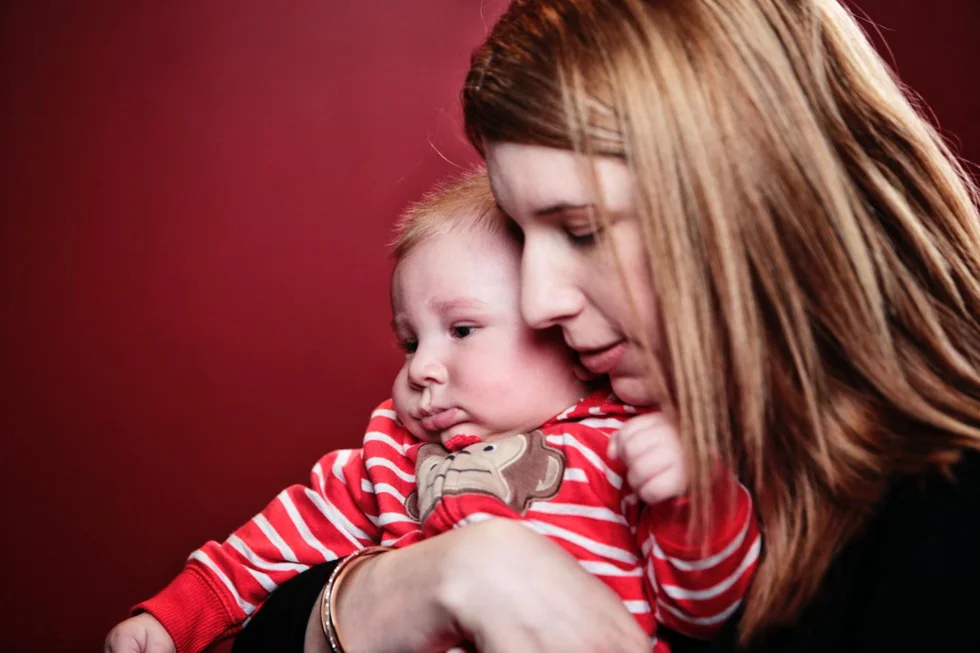By Jaime Richman Comes
The pain was unbearable. Even wiping after I went to the bathroom caused extreme pain. Was this how every woman felt after giving birth? None of the doctors had answers for me, and I was losing hope that they ever would.
Since I'd never had a baby before, I had no idea how I should feel after delivery. I just knew I was uncomfortable, swollen and in great pain, with no control of my bladder. The first time I lost control of my bladder was in my living room right after we got home from the hospital, but I didn't know this might not be normal. And then it happened again, two days later, on my way to my first lactation appointment. As I was leaving the appointment, a woman who worked at the hospital noticed me struggling to walk and with a look of concern on her face, rushed over to give me a wheelchair. For the first time since I delivered my baby boy, I realized that something was wrong.
I set up an appointment with my OB/GYN but could not tolerate the intense pain when they tried to examine me. I ended up in the emergency room, where the OB residents on duty asked my husband if he thought my face and legs looked swollen. Then they anesthetized me, examined me, and found a vaginal hematoma. The stitches to repair the second-degree tear that happened during delivery had come undone, causing a serious infection. Twelve hours later, I was sent home, high on medication and unable to sleep, but happy to be home holding my baby.
Unfortunately, I continued to experience excruciating pain and incontinence. I went back and forth to the OB for several appointments, trying desperately to get control of my pain with medications, patches, ice, and any remedy that was suggested to me. I'd been looking forward to breastfeeding my baby but was in so much pain that my milk supply never fully came in. Ultimately, I was unable to breastfeed. Another loss.
Finally, at my postpartum appointment, the OB was out of options. With a complete lack of compassion and empathy, she told me, "Expect to be in pain for the rest of your life."
During the next two and half years, I endured feelings of helplessness and disappointment and continued to fight my OB's prognosis. I visited numerous specialists — neurologists, urologists, neuro-urologists, and obstetricians. I was determined to resolve the pain, but all I received were misdiagnoses. One specialist suggested I see a spine surgeon. Another sent me for nerve blocks, MRIs, three rounds of pelvic floor physical therapy, an EMG (a procedure to test the health of your muscles and nerves), and nine months of acupuncture treatments. Through this ordeal, my mental health suffered. I experienced depression, anxiety, and occipital neuralgia, with throbbing headaches. I was put on nerve pain drugs, all of which had scary side effects but never relieved my pain.
Finally, after years of disappointment, pain and misdiagnoses, I paid out-of-pocket again to see another specialist, who told me that my pudendal nerve was in the middle of my birth canal and my anatomy was partly to blame for my postpartum complications. Because of the positioning of this nerve, I should have had a c-section rather than a natural birth. Lack of bladder control immediately after delivery was a clear indication of nerve damage. And when I received postpartum surgery for the hematoma, my pudendal nerve was likely cut, causing further complications.
I was referred to a specialist who could perform the unique surgery I needed. I felt tremendous relief knowing I had an actual diagnosis and that a surgery existed that could relieve my pain. In May 2019, I finally had surgery on both the right and left pudendal nerves. It took another eight months for me to recover fully and finally feel pain-free.
This story is not meant to scare women or discourage expectant mothers. I want to let women know they should speak up for themselves when they feel pain and keep searching for answers no matter what. Although my specific situation is extremely rare, it is not uncommon for women to experience postpartum pelvic pain. It's also not uncommon for women to receive no diagnosis, no guidance, and little support from their medical team.
When doctors cannot determine what is wrong, it's easy to start losing hope. And if you don't have the money or resources to keep searching for answers, you can easily end up in continual pain, without a proper diagnosis or treatment. A woman who had the same surgery on the same day I did told me she'd been experiencing pain for 30 years! My diagnosis took two and a half years to resolve — two and a half agonizing years that should have been full of joy with my newborn and husband.
Please always listen to your gut and trust yourself when something does not seem right. We need to advocate for ourselves to get proper care and ensure that when we have concerns, our health-care team listens and acts.







